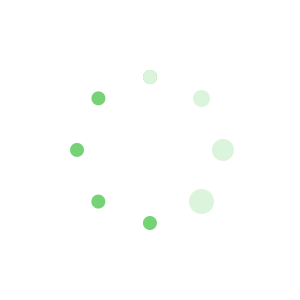人教版和冀教版的区别
1、出版社不同:
人教版:人民教育出版社。
冀教版:河北教育出版社。
2、适用范围不同:
人教版:大部分地区所使用的教材。
冀教版:主要使用于河北地区。
3、教材内容不同:
人教版:教材内容更加普适化。
冀教版:内容更多因河北地区本身历史文化所决定,比较独特。
八年级上册英语复习提纲
【语言目标】
Whatdoyouusuallydoonweekends?Isometimesgotothebeach.
Howoftendoyoueatvegetables?Everyday.
Moststudentsdohomeworkeveryday.
【应掌握的词组】
1.gotothemovies去看电影
2.lookafter=takecareof照顾
3.surftheinternet上网
4.healthylifestyle健康的生活方式
5.goskateboarding去划板
6.keephealthy=stayhealthy保持健康
7.exercise=take(much)exercise=dosports锻炼
8.eatinghabits饮食习惯
9.takemoreexercise做更多的运动
10.thesameas与什么相同
11.bedifferentfrom不同
12.onceamonth一月一次
13.twiceaweek一周两次
14.makeadifferenceto对什么有影响
15.howoften多久一次
16.although=though虽然
17.mostofthestudents=moststudents
18.shop=goshopping=dosomeshopping购物
19.asfor至于20.activitysurvey活动调查
21.dohomework做家庭作业
22.dohousework做家务事
23.eatlessmeat吃更少的肉
24.junkfood垃圾食物
25.begoodfor对什么有益
26.bebadfor对什么有害
27.wanttodosth想做某事
28.wantsbtodosth想某人做某事
29.trytodosth尽量做某事
30.comehomefromschool放学回家
31.ofcourse=certainly=sure当然
32.getgoodgrades取得好成绩
33.someadvice
34.hardly=notnearly/almostnot几乎不
35.keep/beingoodhealth保持健康
36.bestressed紧张的,有压力的
37.takeavacation去度假
48.getback回来
【应掌握的句子】
1.Howoftendoyouexercise?你(你们)多久锻炼一次身体?
Howoften+助动词do(does或did)+主语+dosth.?疑问词howoften是问频率(多久一次),(在这里助动词do(does或did)是起帮助构成疑问的作用)与一般现在时或一般过去时连用,回答一般是用表示频率的副词,如:once,twice,threetimes…,sometimes,often,quite,often,never,everyday,onceaweek,twiceamonth,threetimesamonth,threeorfourtimesamonth等。
2.“Whatdoyouusuallydoonweekends?”“Iusuallyplaysoccer.”
“周末你通常做什么?”“我通常踢足球。”
第一个do为助动词,在这起帮助构成疑问的作用;而第二个do则是实义动词。
3.“What’syourfavoriteprogram?”“It’sAnimalWorld.”“你喜欢什么节目?”“动物世界。”
4.Asforhomework,moststudentsdohomeworkeveryday.
asfor...意思是“至于;关于”,常用于句首作状语,其后跟名词、代词或动词的-ing形式(即动名词)。
5.Momwantsmetogetupat6:00andplayping-pongwithher.
wanttodosth.意思是“想要做某事”;
wantsb.todosth.意思是“想要某人做某事”。
6.Shesaysit’sgoodformyhealth.
begoodfor...表示“对……有益(有好处)”;其反义为:bebadfor...。(这里for是介词,后跟名词、代词或动名词)
7.Howmanyhoursdoyousleepeverynight?
8.Iexerciseeveryday,usuallywhenIcomehomefromschool.
9.Myeatinghabitsareprettygood.pretty相当于very。
10.Itrytoeatalotofvegetables,usuallytentoeleventimesaweek.
trytodosth.表示“尽力做某事”,不包含是否成功的意思而trydoingsth.表示“(用某一办法)试着去做某事”。
11.Myhealthylifestylehelpsmegetgoodgrades.
helpsb.(to)dosth.帮助某人做某事
12.Goodfoodandexercisehelpmetostudybetter.
better是well的比较级,而不是good的比较级
13.Isherlifestylethesameasyoursordifferent?=Isherlifestylethesameasyourlifestyleorisherlifestyledifferentfromyours?bethesameas…/bedifferentfrom…
14.Whatsportsdoyouplay?
15.Alotofvegetableshelpyoutokeepingoodhealth.
keepingoodhealth=keephealthy=stayhealthy
16.Youmusttrytoeatlessmeat.
trytodosth.表示“尽力做某事”,不包含是否成功的意思,less是little的比较级
17.Thatsoundsinteresting.
这是“主语+系动词+表语”结构的简单句。sound(听起来),look(看起来),smell
(闻起来),taste(尝起来),feel(觉得),seem(好象),grow(变得),get
(变得)等词在英语中可用作系动词,后跟形容词作表语。
八年级英语上册知识点
1. what 与 which 都是疑问代词,都可以指人或事物,但是what仅用来询问职业。如:
What is your father? 你父亲是干什么的?
该句相当于:
What does your father do?
What is your father's job?
Which 指代的是特定范围内的某一个人。如:
---Which is Peter? 哪个是皮特?
---The boy behind Mary. 玛丽背后的那个男孩。
2. What...?是泛指,所指的事物没有范围的限制;而 Which...?是特指,所指的事物有范围的限制。如:
What color do you like best? (所有颜色)
你最喜爱什么颜色?
Which color do you like best, blue, green or yellow? (有特定的范围) 你最喜爱哪一种颜色?
3. what 与 which 后都可以接单、复数名词和不可数名词。如: Which pictures are from China?
哪些图片来自中国?
4) 频度副词的位置
1.常见的频度副词有以下这些:
always(总是,一直)
usually(通常)
often(常常,经常)
sometimes(有时候)
never(从不)
2.频度副词的位置:
a.放在连系动词、助动词或情态动词后面。如:
David is often arrives late for school.
大卫上学经常迟到。
b.放在行为动词前。如:
We usually go to school at 7:10 every day.
我们每天经常在7:10去上学。
c.有些频度副词可放在句首或句尾,用来表示强调。如:
Sometimes I walk home, sometime I rides a bike.
有时我步行回家,有时我骑自行车。
3.never放在句首时,主语、谓语动词要倒装。如:
Never have I been there.
5) every day 与 everyday
1. every day 作状语,译为“每一天”。如:
We go to school at 7:10 every day.
我们每天7:10去上学。
I decide to read English every day.
我决定每天读英语。
2. everyday 作定语,译为“日常的”。
She watches everyday English on TV after dinner.
她晚饭后在电视上看日常英语。
What's your everyday activity?
你的日常活动是什么?
6) 什么是助动词
1.协助主要动词构成谓语动词词组的词叫助动词(Auxiliary Verb)。被协助的动词称作主要动词(Main Verb)。
助动词自身没有词义,不可单独使用,例如:
He doesn't like English. 他不喜欢英语。
(doesn't是助动词,无词义;like是主要动词,有词义)
2.助动词协助主要动词完成以下功用,可以用来:
a. 表示时态,例如:
He is singing. 他在唱歌。
He has got married. 他已结婚。
b. 表示语态,例如:
He was sent to England. 他被派往英国。
c. 构成疑问句,例如:
Do you like college life? 你喜欢大学生活吗?
Did you study English before you came here?你来这儿之前学过英语吗?
d. 与否定副词not合用,构成否定句,例如:
I don't like him. 我不喜欢他。
e. 加强语气,例如:
Do come to the party tomorrow evening. 明天晚上一定来参加晚会。 He did know that. 他的确知道那件事。
3.最常用的助动词有:be, have, do, shall, will, should, would
7) forget doing/to do与remember doing/to do
1.forget to do 忘记要去做某事。 (未做)
forget doing 忘记做过某事。 (已做)
The light in the office is still on. He forgot to turn it off.
办公室的灯还在亮着,它忘记关了。(没有做关灯的动作)
He forgot turning the light off.
他忘记他已经关了灯了。 ( 已做过关灯的动作)
Don't forget to come tomorrow.
别忘了明天来。 (to come动作未做)
八年级英语知识点
1.主语的第三人称单数形式,即可用“he, she, it”代替的。如: he, she, it
my friend, his teacher, our classroom, Tom, Mary's uncle
2.名词有单数名词和复数名词。如:
man(单数)---men(复数) banana(单数)---bananas(复数)
3.动词有原形,第三人称单数形式,-ing分词,过去式,过去分词。如: go---goes---going---went---gone
work---works---working---worked---worked
watch---watches---watching---watched---watched
当主语为第三人称单数的时候,谓语动词必须用相应的第三人称单数形式。如:
The boy wants to be a sales assistant.
Our English teacher is from the US.
Their daughter makes her breakfast all by herself.
1.主语的第三人称单数形式,即可用“he, she, it”代替的。如: he, she, it
my friend, his teacher, our classroom, Tom, Mary's uncle
2.名词有单数名词和复数名词。如:
man(单数)---men(复数) banana(单数)---bananas(复数) 3.动词有原形,第三人称单数形式,-ing分词,过去式,过去分词。如: go---goes---going---went---gone
work---works---working---worked---worked
watch---watches---watching---watched---watched
当主语为第三人称单数的时候,谓语动词必须用相应的第三人称单数形式。如:
The boy wants to be a sales assistant.
Our English teacher is from the US.
Their daughter makes her breakfast all by herself.





